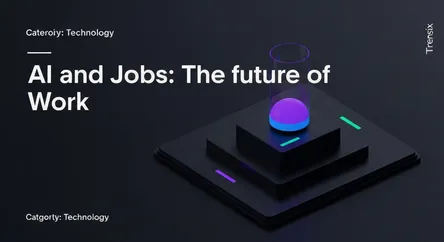Technology
AI and Jobs: The Future of Work

Explore the evolving relationship between artificial intelligence and the job market. Discover how AI creates new roles while displacing others.
What is it?
'AI and Jobs' refers to the transformative impact of artificial intelligence on the labor market. It encompasses the dual effects of job displacement through automation and the creation of entirely new roles. AI systems can now perform tasks once exclusive to humans, from routine data entry and customer service to complex analysis and creative content generation. This intersection of technology and employment is reshaping industries, changing the nature of work, and redefining the skills required for future careers.
Why is it trending?
The topic is trending due to the rapid advancement and mainstream adoption of powerful AI models, especially generative AI. Businesses are increasingly integrating AI to enhance productivity, innovate, and reduce operational costs. This has sparked a global conversation about the future of employment, economic inequality, and the potential for widespread job automation. High-profile discussions by tech leaders and policymakers have further fueled public interest and concern about securing a place in an AI-driven economy.
How does it affect people?
For individuals, AI's impact is complex. It can lead to job insecurity and displacement, particularly in roles with repetitive or predictable tasks, necessitating reskilling and career transitions. Conversely, AI also creates new opportunities, such as AI specialists, prompt engineers, and ethics officers. It serves as a powerful tool that can augment human capabilities, automate tedious work, and allow people to focus on more strategic and creative endeavors. The primary effect is a shift in the skills demanded by the market, emphasizing adaptability, critical thinking, and digital literacy.